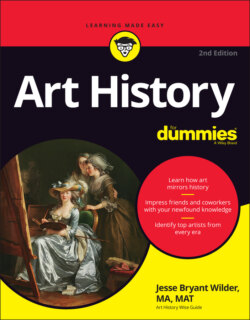Читать книгу Art History For Dummies - Jesse Bryant Wilder - Страница 137
Greece without Borders: Hellenism
ОглавлениеAlexander the Great (356 BC–323 BC) was Macedonian, but he learned to think and feel like a Greek from the greatest Greek of the era, Aristotle. After the death of his father in 336 BC, Alexander became king. In the next eight years, he overran and Hellenized (made Greek-like) most of the known world, planting Greek libraries and Greek city-states in every vanquished kingdom. But when Alexander conquered, he didn’t try to shut down the native culture; instead, he fused it with Greek models. He himself married, among several other women, a princess from Bactria (a country near modern-day Afghanistan) and ordered his officers to take Persian wives to unify the diverse cultures.
After his early death, Alexander’s generals divided his empire three ways:
Seleucus I Nicator ruled Persia, Mesopotamia, and Anatolia.
Ptolemy I Soter governed Egypt.
Antigonus I Monophthalmus controlled Macedonia and Greece.
All these regions eventually fell to the new power rising on the Italian peninsula, the Romans. The last holdout was Egypt, which collapsed in 31 BC when Queen Cleopatra took her own life after Augustus Caesar defeated her and Marc Antony in the Battle of Actium. The Hellenistic period died with a snake bite — Cleopatra’s suicide MO.
